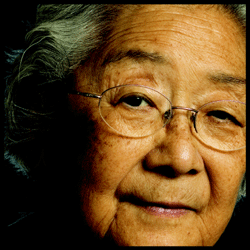

On Dec. 7, 1941, Toru Sakahara, ’40, was a third-year law student at the University of Washington. Ever since he participated in a mock trial at Fife High School, he had wanted to be a lawyer. His father had a truck farm in Fife and Sakahara grew up tending crops of onions, beets, carrots, beans and peas. Though his dad had risen to become the manager of a Japanese farmers’ cooperative, Sakahara was not interested in carrying on the family business.
At that time, the UW had a six-year law program—three years of pre-law and then three years of law school. Sakahara moved to Seattle and stayed at the Japanese student clubhouse on 15th Avenue N.E. To save money, he spent one year as a “school boy,” doing housekeeping for a wealthy family near Golden Gardens Park. But the work was tedious and he returned to the clubhouse.
On that Sunday morning Sakahara was walking past the student lounge in the law school. A radio was playing louder than usual and he stopped to listen. Japanese warplanes had attacked the Pacific Fleet at Pearl Harbor. “It was a considerable surprise,” he says. “There had been talk about a war with Japan, so in a way it was not a surprise, but in another way it was a considerable shock.”
Back at the clubhouse, George Yashui, ’57, was in the kitchen. A junior in chemical engineering, Yashui was the son of an Olympia oyster farmer. It was messy and hard physical labor, and he couldn’t wait to join his two older brothers, who were already UW students. When he got to the University, he started having a good time. “If it wasn’t for the war, I probably would have failed,” he recalls.
Yashui also heard the news on the radio. “I remember yelling, ‘Those goddamn fools,’ to my brothers. We were stunned.”

Sueko Hasagawa Sumioka, ’45, ’60, was at the Japanese Congregational Church in the International District that morning. Her father was also a farmer in the Puyallup Valley. “After high school I spent two years working on the farm. I got tired of it. I was happy to get an education. Farm work was not for me.”
Sumioka found a job as a “school girl,” working six days a week as a maid for a family in Laurelhurst. Sunday was her only day off, and she usually went to church. On Dec. 7, word traveled quickly among the congregation, although the minister tried to conduct a normal service. “I remember thinking, ‘Oh my God, I hope Japan loses. If the U.S. loses, we’re sunk. The Japanese would not treat us very well.’ ”
Seattle native Hiro Nishimura, ’48, had just graduated from Garfield High School and was a freshman in 1941. To make his way through college, he worked as a janitor and dishwasher at St. Mark’s Cathedral and went to Alaska in the summer to work in the salmon canneries. Like most local Nisei, he was a commuter student living at home. On Dec. 7 he went with his father on a social visit to a family friend. Once there, they found that the Japanese vice counsel was also present. “We were listening to the radio. When I heard the terrible news, I was in shock. It was traumatic. Suddenly the vice counsel stood up and said, ‘Oh, I’ve got to go back to the office,’ and left in a rush,” Nishimura recalls. “I thought to myself, ‘He has to go back and burn some files.’ ”
Nishimura immediately understood the impact the attack would have on his community. “We lived with discrimination and social prejudice. With this war, which was not our fault, we knew the implications,” he says.
That Monday morning, he considered skipping classes entirely. He decided to go to Suzzallo Library first, to test the reaction of his fellow students. “I felt all the eyes were upon me. I felt very, very self-conscious. But what could I do? You can’t turn white all of a sudden and become invisible.”
But there was no overt hostility. In fact, none of the Nisei students interviewed recalled any incident of prejudice following Pearl Harbor, even those who reported to the UW ROTC unit the next day. Sociology Professor S. Frank Miyamoto, ’36, ’38, recalls walking into his Introduction to Sociology lecture to a “warm reception” from his students.
That morning, if they picked up a copy of the Daily, Nisei students would find an editorial defending their rights. “We are at war. But when it is over, whether we are successful or not, let it not be said—as it can be said of students in the last war—that they were inflamed by the emotionalism of the mob and thereby diseased with intolerance. Let it not be said that we were too small of mind to respect the rights of man and the unfortunate Japanese Americans among us.”
Go To: Page 1 | Page 2 | Page 3 | Page 4 | Page 5
Stolen Years - Part One: Reader Comments